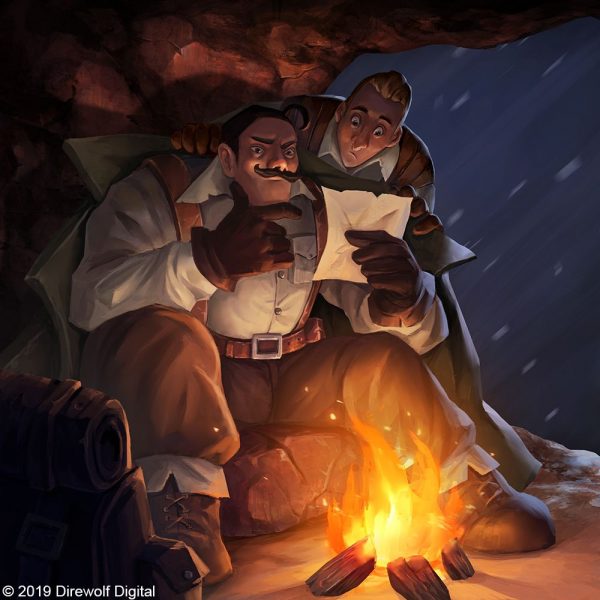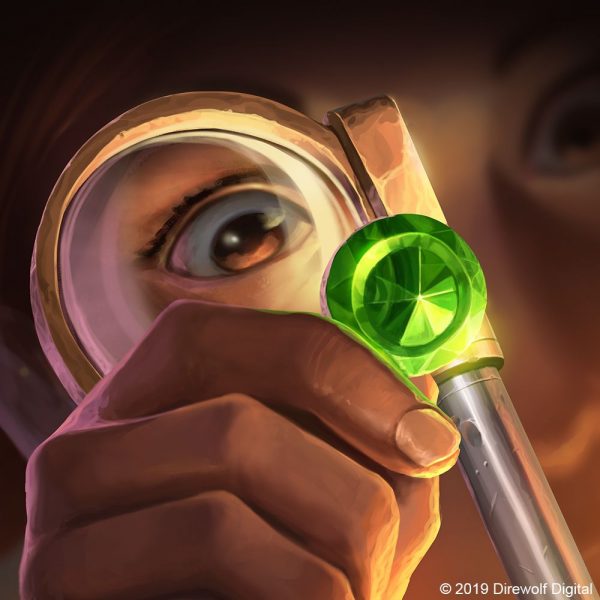Mastering Modules (It’s Not as Easy as It Seems)

You’ve finally done it; your friends are coming over for a game of Dungeons & Dragons! Everyone’s schedules lined up; characters are made, there’s only one thing missing: you haven’t prepared a game. This scenario is prime time to pull out a pre-written adventure. These modules are a fantastic way to pull together a session of Dungeons & Dragons, the trouble is, despite popular belief, there is absolutely a wrong way to run these.
In this article, I’m going to share some words of wisdom that will help you master running those modules. There are many ways to improve any game, but here I’m going to focus on a couple of specifics: first up, I’ll chat about ‘mastering’ the material, and then we’ll jump into tips about making the content your own.
Without further ado, let us dive in!
The Disaster Unfolds
For many years I was a home-brew-only DM. I honestly didn’t know much about running published campaigns; I had no idea there were so many fantastic adventures ready to play posted across the web. When my eyes blessedly opened, it was time to jump to the heart of it; I decided to run the Wizards of the Coast published goth dream campaign: Curse of Strahd. I had my party assembled, we had a day set, and all that was left was to read the book.
My first attempt to do so was a disaster.
There was so much information in that book, and there were a hundred tiny details that I was sure I would forget without copious notes. I became so stressed about trying to run the module ‘perfectly’ that it killed the anticipation I had for playing the game.
While you may not have the same anxieties, I’m sure all of you who have tried to run published games have had to wrestle with ways to master the material presented before you. In the wake of so much information, how do you possibly recall those details in the heat of playing the game?
The quick answer is, you don’t.
Stick with me here.
If we are considering running a module for our game group, we likely don’t have time to do more than one thorough read through. With that being the case, we need to aim to get efficient useable notes on the first run through.

“A Need-to-Note”
So, here’s the advice bit: when prepping to run a module, you should limit yourself to just one page of notes. Any more notes and you will feel as constrained as having the whole book in front of you as you play. If the story is interesting, you will remember the plot, so don’t worry about that! Save your notes for the small stuff.
For example, I always reserve a section for a ‘Proper Noun’ box where I can write down all the NPC and location names mentioned in the text. I usually also add a few key phrases to help me portray each NPC; for example, I might list that ‘Reginald the Butler’ is secretly a gambler, and he is prone to telling long-winded stories.
I also always reserve a space for writing down the Monster Manual page locations of any referenced monsters, or Dungeon Master’s Guide page locations for treasures. These are just a couple of quick examples of what could go on your ‘need to note’ section, but you must discover what works for you.
The goal to keep in mind is to create a note sheet that quickly sparks your memory whenever you become lost mid-game. Build your one-page sheet in such a way that you don’t need to pause the game to flip through a book for reference.
I likely don’t need to tell any of you that breaking the flow of a game to look up a rule or tiny detail is always a bummer. Feel free to find the tools that work for you, introducing elements of colors, tabbing, stickers, etc. can be incredibly helpful for making information stick.
Make it Your Own
My second point here is about ‘making the material your own’ though, like most elements of RPGs, it ties in well with the first. When ‘mastering the material’ in step one, you are highlighting the details you define as crucial elements of the module.
After you have crafted your one page of notes, you likely have a feeling for the unique aspects of the adventure. Having done this, you’ve also defined what the flexible parts of the module are.
Perhaps you don’t have any notes about the one-hour journey from city A to city B, so that is a fantastic space in which to make the module to make your own. Permitting yourself to take creative liberties with a module is vital for crafting a comfortable play experience for both yourself and your players.
If you have the necessities covered by notes, you are free to expound on the personalities of the NPCs or to add different monsters to the encounters without worrying about destroying the integrity of the module. The same module can play through a dozen times, and each iteration will be vastly different because of the group playing through it.
Players inevitably latch onto specific details or characters, so embrace their instincts! You have now mastered the important information, so you know if the wise-cracking salesman can come along on the quest without influencing the plot, if a clan of goblins can ambush the party, etc. Negotiating the specific experience your party has with the presented facts is the key to successfully running a module.
An Experimental Experience
In summation, you don’t have to be the stuttering convention master or the lost game store stand-in; you can train yourself to prioritize just the need to knows and then let your creativity shine to make modules something special. Like any game, they require time and space to prep, but the strategies are a little bit different. Experiment with what works for you, then go out there and craft a fantastic experience.
Happy gaming adventurers!

Celeste Conowitch
Writer, Podcaster, Venture Maiden
1 Comment
Leave a Reply
Mastering Modules (It’s Not as Easy as It Seems)

You’ve finally done it; your friends are coming over for a game of Dungeons & Dragons! Everyone’s schedules lined up; characters are made, there’s only one thing missing: you haven’t prepared a game. This scenario is prime time to pull out a pre-written adventure. These modules are a fantastic way to pull together a session of Dungeons & Dragons, the trouble is, despite popular belief, there is absolutely a wrong way to run these.
In this article, I’m going to share some words of wisdom that will help you master running those modules. There are many ways to improve any game, but here I’m going to focus on a couple of specifics: first up, I’ll chat about ‘mastering’ the material, and then we’ll jump into tips about making the content your own.
Without further ado, let us dive in!
The Disaster Unfolds
For many years I was a home-brew-only DM. I honestly didn’t know much about running published campaigns; I had no idea there were so many fantastic adventures ready to play posted across the web. When my eyes blessedly opened, it was time to jump to the heart of it; I decided to run the Wizards of the Coast published goth dream campaign: Curse of Strahd. I had my party assembled, we had a day set, and all that was left was to read the book.
My first attempt to do so was a disaster.
There was so much information in that book, and there were a hundred tiny details that I was sure I would forget without copious notes. I became so stressed about trying to run the module ‘perfectly’ that it killed the anticipation I had for playing the game.
While you may not have the same anxieties, I’m sure all of you who have tried to run published games have had to wrestle with ways to master the material presented before you. In the wake of so much information, how do you possibly recall those details in the heat of playing the game?
The quick answer is, you don’t.
Stick with me here.
If we are considering running a module for our game group, we likely don’t have time to do more than one thorough read through. With that being the case, we need to aim to get efficient useable notes on the first run through.

“A Need-to-Note”
So, here’s the advice bit: when prepping to run a module, you should limit yourself to just one page of notes. Any more notes and you will feel as constrained as having the whole book in front of you as you play. If the story is interesting, you will remember the plot, so don’t worry about that! Save your notes for the small stuff.
For example, I always reserve a section for a ‘Proper Noun’ box where I can write down all the NPC and location names mentioned in the text. I usually also add a few key phrases to help me portray each NPC; for example, I might list that ‘Reginald the Butler’ is secretly a gambler, and he is prone to telling long-winded stories.
I also always reserve a space for writing down the Monster Manual page locations of any referenced monsters, or Dungeon Master’s Guide page locations for treasures. These are just a couple of quick examples of what could go on your ‘need to note’ section, but you must discover what works for you.
The goal to keep in mind is to create a note sheet that quickly sparks your memory whenever you become lost mid-game. Build your one-page sheet in such a way that you don’t need to pause the game to flip through a book for reference.
I likely don’t need to tell any of you that breaking the flow of a game to look up a rule or tiny detail is always a bummer. Feel free to find the tools that work for you, introducing elements of colors, tabbing, stickers, etc. can be incredibly helpful for making information stick.
Make it Your Own
My second point here is about ‘making the material your own’ though, like most elements of RPGs, it ties in well with the first. When ‘mastering the material’ in step one, you are highlighting the details you define as crucial elements of the module.
After you have crafted your one page of notes, you likely have a feeling for the unique aspects of the adventure. Having done this, you’ve also defined what the flexible parts of the module are.
Perhaps you don’t have any notes about the one-hour journey from city A to city B, so that is a fantastic space in which to make the module to make your own. Permitting yourself to take creative liberties with a module is vital for crafting a comfortable play experience for both yourself and your players.
If you have the necessities covered by notes, you are free to expound on the personalities of the NPCs or to add different monsters to the encounters without worrying about destroying the integrity of the module. The same module can play through a dozen times, and each iteration will be vastly different because of the group playing through it.
Players inevitably latch onto specific details or characters, so embrace their instincts! You have now mastered the important information, so you know if the wise-cracking salesman can come along on the quest without influencing the plot, if a clan of goblins can ambush the party, etc. Negotiating the specific experience your party has with the presented facts is the key to successfully running a module.
An Experimental Experience
In summation, you don’t have to be the stuttering convention master or the lost game store stand-in; you can train yourself to prioritize just the need to knows and then let your creativity shine to make modules something special. Like any game, they require time and space to prep, but the strategies are a little bit different. Experiment with what works for you, then go out there and craft a fantastic experience.
Happy gaming adventurers!

Celeste Conowitch
Writer, Podcaster, Venture Maiden
Find her on Twitter @cconowitch or check out her work at www.celesteconowitch.com
1 Comment
-
AffiliateLabz on February 15, 2020 at 5:48 pm
Great content! Super high-quality! Keep it up! 🙂


Great content! Super high-quality! Keep it up! 🙂